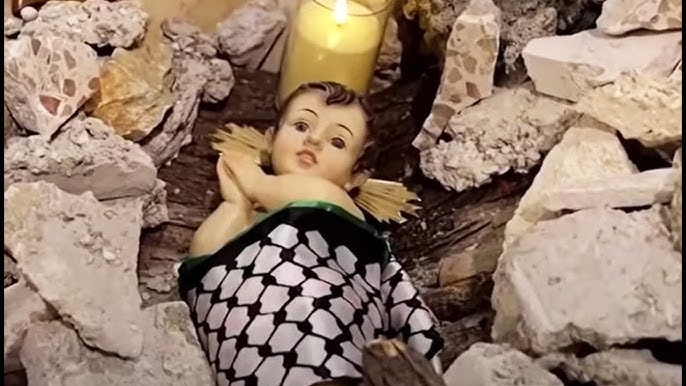Summary
- Tourists usually flock in, but the Gaza War is keeping them away.
- Manger Square remains largely deserted, with no plans for a tree.
- Local families are looking to emigrate as the situation worsens.
BETHLEHEM, West Bank, Dec 1 (Reuters) – For the second consecutive year, Bethlehem faces a Christmas without cheer. Tourists are avoiding the Palestinian city, and many locals are looking for a way out as the Gaza war continues.
Manger Square, in front of the Church of the Nativity, is mostly empty, and souvenir shops remain closed.
Once again, there are no plans to erect the traditional Christmas tree adorned with lights in this ancient city, revered by Christians as the birthplace of Jesus, now located in the Israeli-occupied West Bank.
“During these challenging times in our Palestinian cities, especially in the Gaza Strip, it’s hard to show any signs of joy or happiness,” said Issa Thaljieh, an Orthodox priest at the Church of the Nativity.
Adding to the bleakness, many local Christian families are seeking to leave, discouraged by the economic toll of the tourism decline and the constant threat of violence looming over the territory northeast of Gaza.
“The emigration from Bethlehem is increasing daily and monthly, and this is negatively impacting the city,” Thaljieh said.
Christian communities have declined across the Middle East for generations, and the West Bank is no exception.
In 1947, the final year of British rule over the region, Christians made up about 85% of Bethlehem’s population. By 2017, Bethlehem’s population had grown to 215,514, with only 23,000 Christians, or roughly 10% of the total population.
Locals say the rate of departure has been accelerating in recent months in the cradle of Christianity, as the city’s economic lifeblood has dried up and the Israeli occupation restricts movement throughout the territory.
Bethlehem resident Alaa Afteem, who runs a falafel restaurant, shared that one of his cousins recently moved to Australia.
“Because of the poor living and financial conditions, people are seeking better opportunities for their children—better education, a better future,” he told Reuters.
‘THERE IS NO SECURITY’
Since the 1967 war between Israel and neighboring Arab countries, Israel has occupied the West Bank, which Palestinians seek as the heart of a future independent state.
Israel has built Jewish settlements throughout the territory, which most countries consider illegal. Israel disputes this, citing historical and biblical ties to the land. Several Israeli ministers live in these settlements and support their expansion.
Violence has escalated across the West Bank since the start of the Hamas-Israel war in Gaza in October of the previous year.
Hundreds of Palestinians—including armed fighters, stone-throwing youths, and civilian bystanders—have been killed in clashes with Israeli security forces, while dozens of Israelis have died in Palestinian attacks, according to Israeli authorities.
Travel between West Bank cities, already difficult, has become increasingly perilous.
“There is no security if you are commuting between districts within the West Bank, like between Bethlehem, Ramallah, Jericho, and Hebron,” said Afteem.
Munther Isaac, a pastor at Bethlehem’s Lutheran Church, noted that local Muslim families are also emigrating, driven by both financial hardships and broader concerns about the future.
“There is the fear that this war might extend to areas in the West Bank, especially after the arming of the settlers and the announcement of the possible annexation of the West Bank,” Isaac said.
Over the past two years, the West Bank has been reshaped by the rapid growth of Jewish settlements, with more radical settlers pushing to impose Israeli sovereignty over the region.
In October, far-right National Security Minister Itamar Ben-Gvir stated on X that more than 120,000 firearms had been distributed to Israeli settlers since the beginning of the Gaza conflict to help them protect themselves.
At Isaac’s church, the nativity scene includes a figure of the baby Jesus lying amid a pile of rubble. “We feel that this war will never end,” he said.

